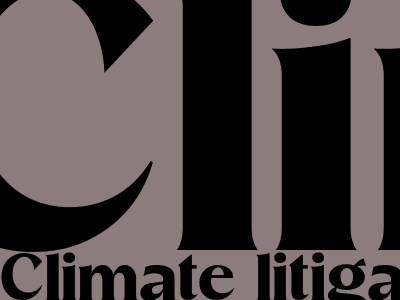
Climate Litigation and Cooperation after the 2024 Election
Contentious Future Looms
The impending 2024 election in the United States poses a pivotal juncture for climate litigation and cooperation. The outcome could profoundly shape the country's environmental trajectory, signaling either a resurgence of climate action or a further entrenchment of gridlock.
The last presidential election highlighted the deep political divide over climate change, with the current administration rolling back environmental regulations and withdrawing from the Paris Agreement. This has resulted in a surge in climate litigation, as states, cities, and environmental groups seek to fill the void left by federal inaction.
Litigation Landscape
Climate litigation has emerged as a critical tool to hold governments and corporations accountable for their contributions to climate change. Over the past decade, numerous lawsuits have been filed, challenging everything from fossil fuel infrastructure projects to inadequate climate policies.
One notable case is Juliana v. United States, a lawsuit brought by 21 young plaintiffs alleging that the federal government's failure to address climate change violates their constitutional rights. The case has drawn significant attention and could have far-reaching implications for future climate litigation.
Prospects for Cooperation
Despite the contentious political climate, there are reasons for optimism regarding climate cooperation after the 2024 election. Public concern over climate change is growing, and a growing number of businesses and investors are recognizing the risks posed by inaction.
Bipartisan Initiatives
In recent years, there have been several bipartisan initiatives aimed at addressing climate change. For example, the Climate Solutions Caucus, a group of lawmakers from both parties, has been working to find common ground on climate policy.
Additionally, a number of states and cities have adopted ambitious climate goals and are implementing innovative policies to reduce emissions. These efforts could provide a model for national action if there is a change in political leadership.
International Cooperation
The United States' role in international climate cooperation is also crucial. The country's withdrawal from the Paris Agreement has weakened global efforts to combat climate change. However, there are signs that the next administration may seek to re-engage in international climate negotiations.
By rejoining the Paris Agreement and working with other countries, the United States could help to strengthen the global response to climate change and accelerate the transition to a low-carbon economy.
Conclusion
The outcome of the 2024 election will have a profound impact on climate litigation and cooperation in the United States. While the political landscape remains uncertain, there are reasons for both optimism and concern about the future of climate action.
If the next administration prioritizes climate change, there could be a resurgence of climate litigation as environmental groups seek to hold the government accountable. However, if climate change remains a low priority, gridlock and inaction could continue to hamper progress.
Ultimately, the future of climate litigation and cooperation in the United States will depend on the political will of the next administration and the engagement of citizens and organizations across the country.